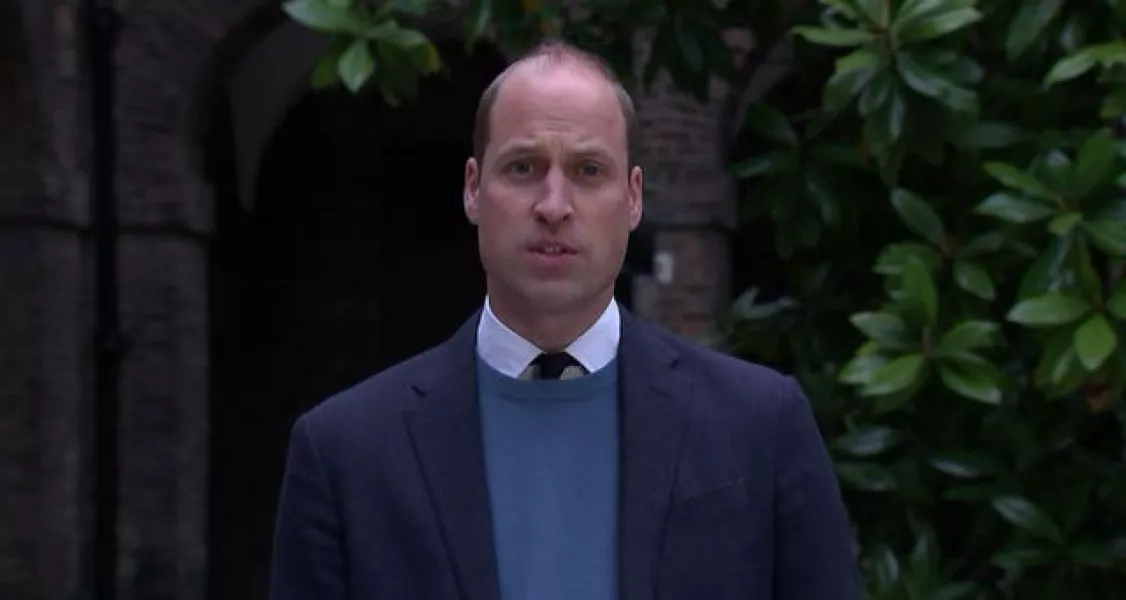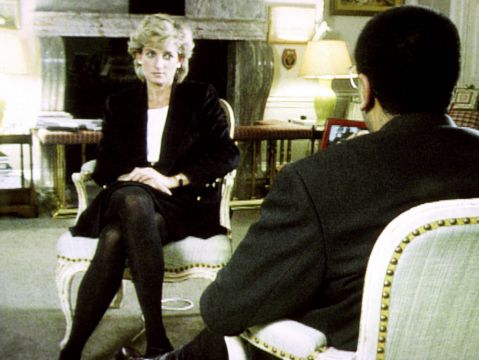Boris Johnson expressed sympathy for members of the British royal family following the publication of Lord Dyson’s blistering report into the circumstances surrounding Diana, Princess of Wales’ 1995 Panorama interview.
His comments come as Britain's Prince William made his first public appearance, in Edinburgh, since both he and his brother, Prince Harry, issued scathing statements after the 127-page document found the BBC covered up “deceitful behaviour” used by journalist Martin Bashir to secure the interview.

William condemned the BBC in a statement saying the interview had fuelled his mother’s “fear, paranoia and isolation” in the final years of her life and damaged her relationship with his father, Prince Charles.
Harry also hit out at the corporation, saying: “The ripple effect of a culture of exploitation and unethical practices ultimately took her life.”
During a visit to Portsmouth on Friday, the UK prime minister said he was “obviously concerned” by the inquiry’s findings”, adding: “I can only imagine the feelings of the royal family and I hope very much that the BBC will be taking every possible step to make sure nothing like this ever happens again.”
Former director of BBC News James Harding, who held the post when Bashir was rehired to the broadcaster in 2016, apologised on Friday and said responsibility for the journalist returning to the corporation “sits with me”.
Speaking to BBC News, he also sidestepped questions on whether former director-general Lord Hall, who led an internal investigation into the Diana interview in 1996, had any role in the rehiring process.
In 2016, Bashir was rehired as the BBC’s religious affairs correspondent, before becoming religion editor.
The BBC is facing mounting pressure from figures including UK justice secretary Robert Buckland, who said ministers would be looking into whether there were BBC governance issues outside of the remit of Lord Dyson’s reports that needed reviewing.

Mr Buckland told ITV’s Good Morning Britain: “My colleague the culture secretary, Oliver Dowden, has rightly said that we should look at the governance structures of the BBC.
“They have apologised, which is appropriate, but clearly the wider issues of governance and the way things are run now need to be looked at.”
On Friday former BBC executive Tim Suter, who was part of the 1996 internal investigation, stepped down from his current board role with UK media watchdog Ofcom in the wake of the report.
Suter had previously been managing editor of weekly programmes in BBC News and current affairs.
Dame Melanie Dawes, Ofcom’s chief executive, said: “By mutual agreement, Tim Suter, Ofcom board member and chair of Ofcom’s content board, is stepping down with immediate effect. We would like to thank Tim for his contribution to Ofcom.”
She also confirmed the watchdog would be entering discussions with the BBC, adding: “As the BBC’s independent regulator Ofcom is considering the report, and will be discussing with the BBC what further actions may be needed to ensure that this situation can never be repeated.”
Lord Dyson’s report concluded that Bashir was in “serious breach” of the BBC’s producer guidelines when he faked bank statements and showed them to Earl Spencer, Diana’s brother, to gain access to her.
The BBC has since written to the British royal family to apologise for the circumstances surrounding the interview, in which Diana said: “Well, there were three of us in this marriage, so it was a bit crowded”, a reference to Camilla Parker Bowles – who Charles later married.







